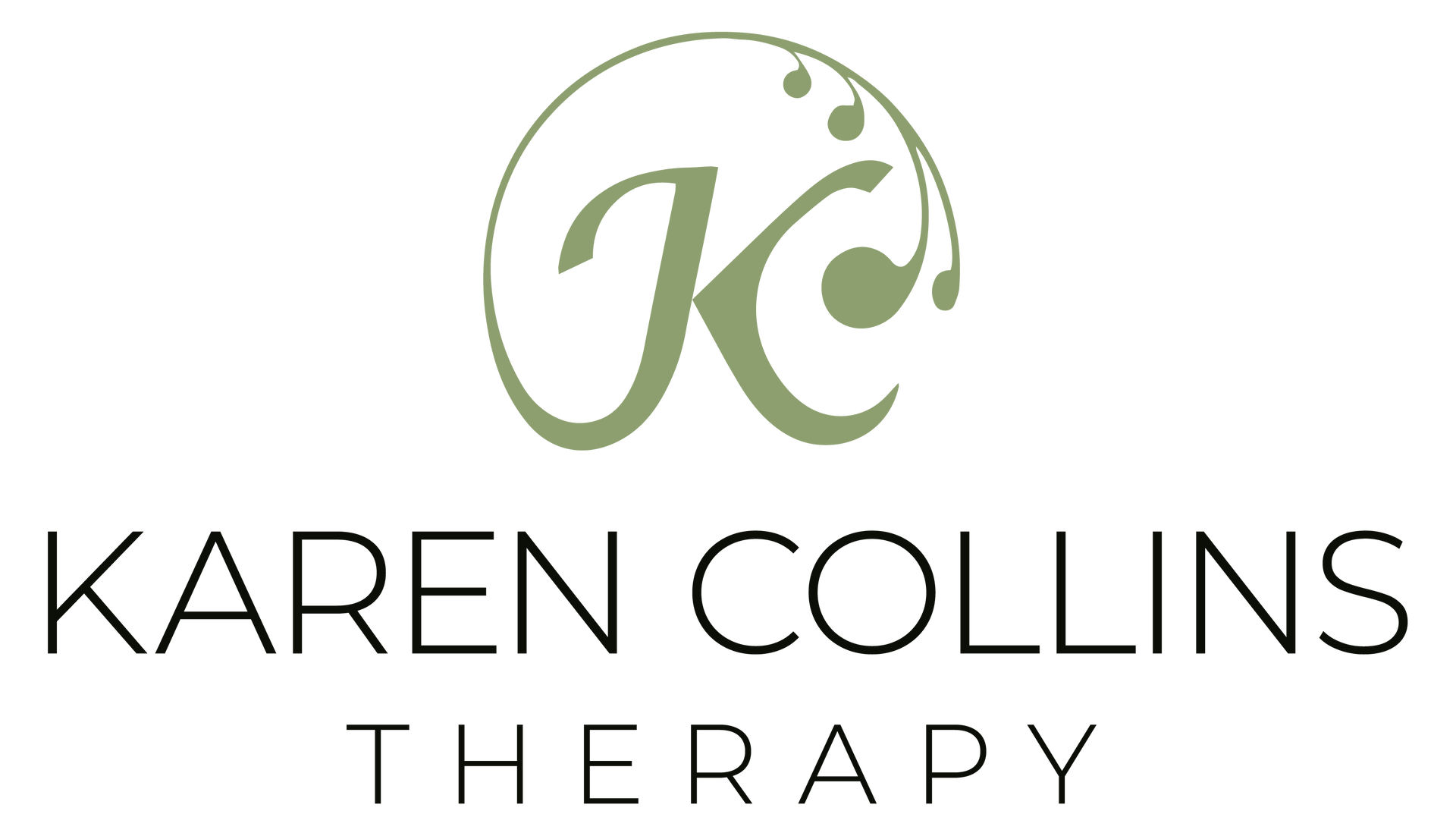Anxiety Treatment Rohnert Park: Expert Therapy for Worry, Panic & Stress | Karen Collins LMFT
Finding the Right Therapist in Rohnert Park for Your Mental Health Needs
If you're living in Rohnert Park and struggling with anxiety, finding the right therapist can feel overwhelming. The good news is that you don't have to travel far to access expert mental health care. Located just 10 minutes south in Petaluma, I provide comprehensive anxiety treatment for Rohnert Park residents who are ready to find relief from worry, panic, and overwhelming stress.
I'm Karen Collins, a licensed marriage and family therapist in Rohnert Park's neighboring Petaluma, with over 20 years of experience helping individuals overcome anxiety disorders throughout Sonoma County. As a mental health professional who understands our local community, I know how debilitating anxiety can be - the constant worry, the physical symptoms, the way it can interfere with work, relationships, and daily activities.
Comprehensive Mental Health Services for Sonoma County
As a therapist in Rohnert Park's service area, I specialize in treating anxiety disorders using evidence-based approaches that help clients develop effective coping skills and strategies. My therapy services in Sonoma County are designed to create a safe space where you can explore your thoughts and feelings without judgment while learning practical tools for managing anxiety.
Licensed therapists use proven treatment methods to help people find relief from various anxiety disorders. The easiest way to find effective anxiety treatment is to work with someone who understands both the clinical aspects of anxiety and the unique stressors facing our Sonoma County community.
Understanding Anxiety Disorders: When Professional Help Is Needed
Anxiety is more than just occasional stress or worry - it's a persistent condition that can significantly impact your quality of life and overall mental health. For Rohnert Park residents, anxiety disorders might be triggered by various factors including work pressures, family responsibilities, health concerns, or major life transitions.
Normal stress vs. anxiety disorder - While everyone experiences stress and worry from time to time, anxiety becomes a mental health concern when it:
- Persists for weeks or months without relief
- Interferes with daily activities like work, relationships, or self-care
- Causes significant physical symptoms like panic attacks, headaches, or sleep problems
- Leads to avoidance of situations, places, or activities you previously enjoyed
- Feels overwhelming despite your best efforts and coping strategies to manage it
Common anxiety disorders
that affect many people in Sonoma County include generalized anxiety disorder, social anxiety, panic disorder, and specific phobias. Each type of anxiety may require different therapeutic approaches, which is why working with an experienced therapist or counselor in Rohnert Park's area is so important.
Common anxiety symptoms that Rohnert Park residents experience include:
- Excessive worry about everyday situations
- Racing thoughts that are difficult to control
- Physical symptoms like rapid heartbeat, sweating, or trembling
- Restlessness and difficulty concentrating
- Sleep disturbances and fatigue
- Muscle tension and headaches
- Digestive issues related to stress
Types of Anxiety Disorders I Treat
My anxiety treatment practice serves Rohnert Park residents dealing with various forms of anxiety, always using approaches that match my actual training and expertise:
Generalized Anxiety Disorder (GAD)
GAD involves persistent, excessive worry about multiple areas of life including work, health, family, and future events. People with GAD often describe feeling anxious most days without a clear reason.
Symptoms include:
- Chronic worry that's difficult to control
- Expecting the worst-case scenario in most situations
- Physical tension and restlessness
- Difficulty making decisions due to fear of making the wrong choice
- Fatigue from constant mental vigilance
Social Anxiety Disorder
Social anxiety involves intense fear of social situations and concern about being judged or embarrassed by others. This can significantly impact work performance, relationships, and social activities.
Common situations that trigger social anxiety:
- Speaking in meetings or presentations
- Attending social gatherings or parties
- Dating or romantic interactions
- Eating in public or using public restrooms
- Being the center of attention
Panic Disorder
Panic disorder involves recurrent panic attacks - sudden episodes of intense fear accompanied by physical symptoms. The fear of having future panic attacks often becomes as problematic as the attacks themselves.
Panic attack symptoms include:
- Rapid heartbeat or chest pain
- Shortness of breath or feeling like you're choking
- Sweating, trembling, or hot/cold flashes
- Nausea or stomach distress
- Feeling detached from reality or losing control
- Fear of dying or having a serious medical problem
Evidence-Based Therapy Approaches Used in Treatment
My anxiety treatment for Rohnert Park residents utilizes research-proven therapy methods that have helped thousands of people overcome anxiety disorders:
Cognitive Behavioral Therapy (CBT)
Cognitive behavioral therapy is considered the gold standard for anxiety treatment by the National Institute of Mental Health (NIMH). This therapeutic approach helps you:
Identify anxious thoughts and examine the evidence for and against them. Many anxious thoughts are based on catastrophic thinking or overestimating danger.
Challenge unhelpful thinking patterns like cognitive behavioral patterns including all-or-nothing thinking, fortune telling, or mind reading that fuel anxiety.
Develop practical coping skills for managing anxiety when it arises, including relaxation techniques and problem-solving strategies.
Gradual exposure therapy to feared situations in a safe, controlled way helps reduce avoidance and build confidence.
Solution-Focused Therapy Approaches
I incorporate solution-focused therapy principles that emphasize building on your existing strengths and resources:
Goal-oriented work that focuses on what you want your life to look like without anxiety rather than extensively analyzing problems..
Strength identification to help you recognize coping strategies and resources you already possess.
Practical action steps that create immediate improvements in anxiety management and daily functioning.
Attachment-Based Healing for Anxiety
My approach recognizes how early relationships and attachment patterns can contribute to anxiety:
Understanding attachment styles and how they may influence your anxiety responses and relationship patterns.
Building secure connections that support emotional regulation and reduce anxiety in relationships.
Processing attachment-related fears that may contribute to social anxiety or relationship difficulties.
Mindfulness-Based Approaches
Mindfulness techniques help you develop a different relationship with anxious thoughts and feelings:
Present-moment awareness reduces worry about future events and rumination about past mistakes.
Acceptance strategies help you tolerate uncomfortable feelings rather than fighting against them, which often makes anxiety worse.
Breathing and relaxation exercises provide immediate tools for managing acute anxiety symptoms.
Body awareness techniques help you recognize early signs of anxiety and intervene before symptoms escalate.
Solution-Focused Therapy
This practical approach emphasizes building solutions and utilizing your existing strengths:
Goal-oriented work focuses on what you want your life to look like without anxiety rather than extensively analyzing problems.
Strength identification helps you recognize resources and coping skills you already possess.
Small changes that can create significant improvements in anxiety management.
Action planning provides concrete steps you can take between sessions to reduce anxiety.
Why Choose Local Mental Health Treatment in Sonoma County
Selecting anxiety treatment from my Petaluma practice offers several advantages for Rohnert Park residents seeking mental health services:
Convenient Access to Licensed Mental Health Professionals
Short drive time - Just 10 minutes south on Highway 101 makes therapy sessions easy to schedule around work and family commitments.
Flexible scheduling accommodates various work schedules common in Sonoma County, from traditional business hours to evening appointments.
Reduced travel stress compared to driving to San Francisco or other distant locations, which can actually trigger anxiety for some people.
Familiar area - Staying within Sonoma County means accessing mental health care in a familiar, comfortable environment.
Therapists Who Understand Our Community
Local lifestyle factors - I understand the specific stressors that affect Sonoma County residents, from seasonal employment fluctuations to wildfire concerns that impact mental health.
Commuter challenges - Many Rohnert Park residents commute to the Bay Area, and I understand how this stress can contribute to anxiety and depression.
Community resources - I can help you find a therapist who works well with other local mental health services and supports throughout Sonoma County when helpful.
Cultural awareness - Understanding of the diverse backgrounds and experiences that make up our Sonoma County community.
Specialized Anxiety Treatment for Rohnert Park's Unique Challenges
Living in Rohnert Park and Sonoma County presents both wonderful opportunities and unique stressors that can contribute to anxiety:
Specialized Support for Anxiety and Related Concerns
For clients in Rohnert Park dealing with anxiety that may stem from difficult life experiences, I provide compassionate support using proven therapeutic approaches:
Anxiety symptoms can significantly impact daily functioning and emotional well-being. Common symptoms include excessive worry, physical tension, sleep difficulties, and avoidance behaviors.
Trauma-informed care recognizes that some anxiety may be related to past difficult experiences, and I provide a safe therapeutic environment for processing these concerns.
Safe space for healing - Creating a therapeutic environment where clients feel secure enough to explore their anxiety and develop effective coping strategies at their own pace.
Personalized treatment plans that address each person's specific anxiety symptoms and triggers, recognizing that anxiety affects everyone differently and requires individualized approaches.
Economic and Housing Stress
Cost of living pressures in Sonoma County can create financial anxiety that affects mental health.
Housing concerns including affordability and availability that create ongoing stress.
Employment uncertainty in seasonal industries or economic fluctuations.
Commuting stress for those who work outside the immediate area.
Work-Life Balance Challenges
Bay Area commuting stress that can contribute to anxiety and impact family time.
Multiple job demands common in our area's service and hospitality industries.
Seasonal work patterns that create income variability and planning challenges.
Family pressures balancing career demands with family responsibilities.
The Mental Health Treatment Process: How Therapy Helps
Understanding what anxiety treatment involves can help reduce concerns about starting therapy and improve your overall quality of life:
Initial Assessment and Treatment Planning
Comprehensive evaluation of your anxiety symptoms, triggers, and how they impact your daily mental health and functioning.
Medical history review to rule out physical conditions that might contribute to anxiety symptoms.
Goal setting to establish what you want to achieve through treatment and how you'll measure progress toward improved mental health.
Personalized treatment plan based on your specific type of anxiety, personal preferences, and therapeutic needs.
Building Coping Skills Through Therapy Sessions
Immediate coping strategies you can use right away when anxiety arises, including breathing exercises and grounding techniques that help you feel more in control.
Thought challenging techniques to help you examine and modify anxious thinking patterns using cognitive behavioral approaches.
Behavioral experiments to test anxious predictions and build confidence in previously feared situations.
Relaxation training including progressive muscle relaxation and mindfulness exercises that support emotional well-being.
Gradual Exposure and Confidence Building
Exposure hierarchy starting with mildly anxiety-provoking situations and gradually working toward more challenging ones.
In-session practice of anxiety management techniques in a safe, supportive environment.
Real-world application of skills between sessions with guidance and support.
Progress monitoring to adjust treatment as you improve and face new challenges.
Anxiety Treatment Success: What's Possible
Many Rohnert Park residents have found significant relief from anxiety through professional treatment:
Symptom Reduction
Decreased worry and ability to enjoy daily activities without constant anxiety.
Improved sleep as racing thoughts and physical tension decrease.
Reduced physical symptoms including panic attacks, headaches, and digestive issues.
Better concentration and decision-making as anxiety no longer dominates your thoughts.
Life Enhancement
Increased confidence in social and work situations you previously avoided.
Improved relationships as anxiety no longer interferes with emotional connection.
Career advancement when anxiety no longer limits your professional opportunities.
Greater life satisfaction as you engage more fully in activities you enjoy.
Long-Term Benefits
Relapse prevention skills that help you maintain progress and handle future stressors.
Improved stress management for dealing with life's inevitable challenges.
Enhanced self-awareness about your triggers and early warning signs.
Increased resilience and confidence in your ability to handle difficult situations.
Finding Mental Health Professionals Throughout Sonoma County
While I'm located in Petaluma, many people find that the short drive from Rohnert Park is well worth it for quality mental health treatment. Sonoma County offers various mental health services, but finding the right therapeutic fit is essential for successful treatment outcomes.
What to Look for in a Therapist or Counselor in Rohnert Park Area
Licensed mental health professionals with appropriate credentials and experience treating anxiety disorders.
Therapeutic approach that matches your preferences, whether that's cognitive behavioral therapy, EMDR therapy, or other evidence-based methods.
Specialization in treating the specific type of anxiety or mental health concerns you're experiencing.
Insurance compatibility - many therapists accept Anthem Blue Cross and other major insurance plans to make mental health care more accessible.
The Benefits of Working with Experienced Therapists
Proven treatment methods that have helped thousands of people overcome anxiety and improve their mental health.
Personalized approach that recognizes your specific needs and adapts therapy accordingly.
Safe therapeutic space where you can explore your thoughts and feelings without judgment.
Long-term support as you develop new coping skills and maintain your mental health progress.
Anxiety Treatment for Different Life Stages
Anxiety can affect people at any age, and treatment approaches may vary:
Young Adults (18-25)
College and career stress including academic pressure, job searching, and major life transitions.
Social anxiety around dating, friendships, and professional networking.
Independence anxiety related to living on your own and making major decisions.
Future planning concerns about career, relationships, and life direction.
Working Adults (26-55)
Career pressure including job performance, advancement, and workplace relationships.
Family responsibilities balancing work demands with parenting and relationship obligations.
Financial stress including mortgage payments, saving for retirement, and children's expenses.
Health concerns as physical health becomes more important and medical issues may arise.
Older Adults (55+)
Life transition anxiety around retirement, empty nest syndrome, or role changes.
Health anxiety related to aging, medical conditions, or caring for aging parents.
Financial security concerns about retirement savings and healthcare costs.
Loss and grief issues related to friends, family members, or life changes.
Practical Information for Rohnert Park Residents
Scheduling and Accessibility
Flexible appointment times including some evening hours to accommodate work schedules.
Consistent weekly sessions that fit your routine and support therapeutic progress.
Emergency support guidance for managing severe anxiety between sessions.
Telehealth options when in-person sessions aren't possible due to illness or other circumstances.
Insurance and Financial Considerations.
Insurance verification to understand your mental health benefits and coverage for anxiety treatment.
Out-of-network options and payment plans when insurance doesn't provide adequate coverage.
Cost-effectiveness of treatment compared to the ongoing costs of untreated anxiety.
Employee assistance programs that may provide free or reduced-cost counseling sessions.
Location and Logistics
Easy access from Rohnert Park via Highway 101 with convenient parking.
Professional office environment designed to feel welcoming and comfortable.
Confidentiality protection with private entrance and soundproof office space.
Frequently Asked Questions About Anxiety Treatment
What if I've tried therapy before and it didn't help? Different therapists use different approaches, and your readiness for change may be different now than in the past. Many people find that cognitive behavioral therapy, solution-focused approaches, or attachment-based therapy work better for their specific needs. As a licensed therapist who specializes in treating anxiety disorders using proven methods, I can help you explore what might work better this time.
How long does mental health treatment take? Most people see improvements within 4-8 therapy sessions, with significant progress typically occurring over 3-6 months. The exact timeline depends on the severity of your anxiety and how actively you engage in treatment. Therapy helps by providing you with lasting coping skills and strategies that continue to benefit your mental health long after treatment ends.
Will I need medication for my anxiety? While medication can be helpful for some people, many individuals successfully manage anxiety through therapy alone using approaches like cognitive behavioral therapy and solution-focused techniques. I can coordinate with medical providers if medication evaluation seems beneficial, but many clients find significant relief through therapy approaches without medication.
Can anxiety treatment help with multiple types of anxiety? Yes, many people experience more than one type of anxiety, and treatment approaches can address multiple anxiety disorders simultaneously.
What if I've tried therapy before and it didn't help? Different therapists use different approaches, and your readiness for change may be different now than in the past. It's worth exploring what might work better this time.
Is anxiety treatment covered by insurance? Many insurance plans cover anxiety treatment when provided by licensed mental health professionals. I can help you understand your specific benefits.
Taking the First Step: Starting Anxiety Treatment
Deciding to seek professional help for anxiety demonstrates courage and wisdom in caring for your mental health:
Recognizing the need for professional support is the first step toward feeling better.
If anxiety is impacting your daily life, you don't have to continue struggling alone.
Starting with a consultation allows you to discuss your specific concerns and learn about treatment options without committing to long-term therapy.
Commitment to change involves attending sessions regularly and practicing new skills between appointments. Progress requires effort but the results can be life-changing.
Patience with the process is important, as anxiety typically develops over time and requires time to improve sustainably.
Comprehensive Mental Health Services Accessible to All Sonoma County Residents
Living with anxiety doesn't have to be your permanent reality. With proper professional support from experienced mental health professionals and evidence-based treatment approaches, you can learn to manage anxiety effectively and reclaim control of your life.
Many Rohnert Park residents have found relief from anxiety through professional treatment, going on to enjoy improved mental health, better relationships, career success, and overall quality of life. The therapy skills you learn become tools you can use for the rest of your life, helping you maintain improved mental health and emotional well-being.
As a licensed marriage and family therapist serving Sonoma County, I'm committed to providing accessible, high-quality mental health care that helps clients develop effective coping strategies and achieve lasting relief from anxiety disorders.
Ready to start your journey toward anxiety relief? Contact Karen Collins Therapy to schedule your anxiety treatment consultation. Conveniently located in Petaluma and serving Rohnert Park and all of Sonoma County, I provide compassionate, expert mental health services to help you overcome anxiety and live the life you want.
Karen Collins, LMFT, provides specialized anxiety treatment for residents of Rohnert Park, Petaluma, and throughout Sonoma County. With over 20 years of experience as a licensed therapist, she helps individuals overcome worry, panic, and stress using evidence-based approaches including cognitive behavioral therapy, solution-focused therapy, and attachment-based healing tailored to each client's specific needs and mental health goals.












